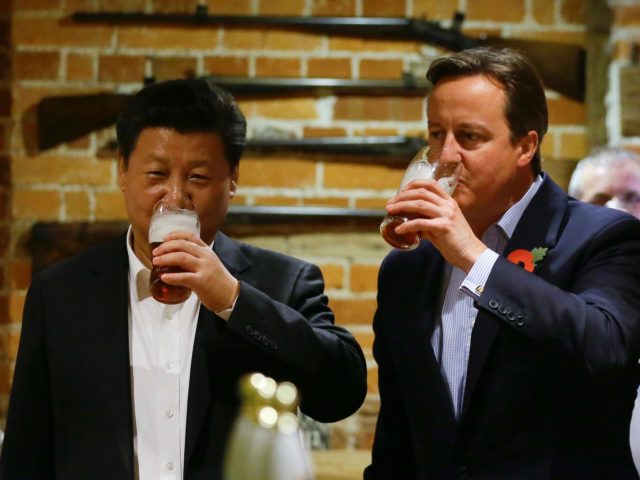Former Prime Minister David Cameron reportedly lobbied then-Chancellor of the Exchequer Philip Hammond in 2017 to secure government approval for a $1 billion Chinese investment deal.
Mr Cameron — who has recently been embroiled in a lobbying scandal involving government contracts secured during the Chinese coronavirus crisis for Greensill Capital — has been revealed to have allegedly used his government connections to gain approval for an investment pact with Chinese partners.
In 2017, Cameron held a meeting with Chancellor Hammond to discuss the formation of the $1 billion (£718 million) UK-China Fund, of which the former Tory prime minister was set to become the vice-chairman, according to correspondence obtained by The Observer and the Bureau of Investigative Journalism.
The meeting came just 15 months after Mr Cameron resigned following his defeat in the Brexit referendum.
Current rules forbid former prime ministers from lobbying the government for two years. However, as Cameron was not yet employed by the Chinese investment fund, he was able to skirt the lobbying prohibition.
In a 2018 letter to then-shadow chief secretary to the Treasury, Labour MP Peter Dowd, Phillip Hammond wrote that Cameron had disclosed in the meeting “of his plans to create a commercial UK-China fund to invest in innovative, sustainable and consumption-driven growth opportunities”.
The letter also revealed that Cameron was successful in securing general government approval of the fund.
“As I noted to Mr Cameron during our meeting, the government is generally supportive of any private sector initiative that furthers UK-China collaboration,” Hammond said in his letter to Dowd.
“Mr Cameron did not at that stage have specific plans for his role in the fund, nor did he ask for government support, given the government has no involvement in the staffing of private sector initiatives,” he added.
This claim does not appear to be true, however, as the advisory Committee on Business Appointments (Acoba) said that Cameron informed the body that “he would be vice-chairman of the fund and this would be a paid role”.
“The independent committee’s role is to give advice under the government’s rules and make that advice transparent. All other matters – such as whether the rules are right or whether ministers are able to meet former prime ministers – are a matter for the government,” Acoba, the ministerial jobs watchdog, said in a statement.
Shortly after the meeting with Cameron, then-Chancellor Hammond publicly endorsed the UK-China Fund during a trip to Beijing.
Mr Cameron is not the only former British prime minister to have profited from connections to China.
Former Labour Prime Minister Tony Blair was revealed to have served as a liaison between Abu Dhabi and the “highest levels of the Communist Party and state-run corporations” in securing investment for Xinjiang — the alleged genocidal region of China — according to a 2015 investigation.
Blair is also reported to have received £237,000 in compensation in 2007 for a speech given in the southern Chinese city of Dongguan, more than he earned in a year serving as prime minister.
A spokesman for David Cameron said that the former prime minister “has never lobbied the UK government about the UK-China fund and no work or tentative discussions about the fund took place while he was prime minister. These discussions [in 2017] were not in any way seeking financial support for the fund, but merely to gain support for the concept of a bilateral fund.”
The Treasury said in a statement: “The bilateral UK-China investment fund was a private, commercial venture. Like other private initiatives mentioned at the dialogue it did not involve government participation or funding.”
Follow Kurt Zindulka on Twitter here @KurtZindulka

COMMENTS
Please let us know if you're having issues with commenting.